Russia has a rich and storied hockey history, which dates back to the 1890s. Hockey was originally introduced to Russia as “bandy,” which was played with a small ball instead of a puck and used field hockey rules. Since then, Russia has gone from being a monarchy led by the Czars, to the first-ever communist state, and finally to the modern-day Russian Federation.
Related: THW World Juniors Guide
Through all of this change, one constant has remained: hockey. Many fantastic hockey players have come from Russia and many young Russian stars have showcased their abilities in the World Junior Championship (WJC).
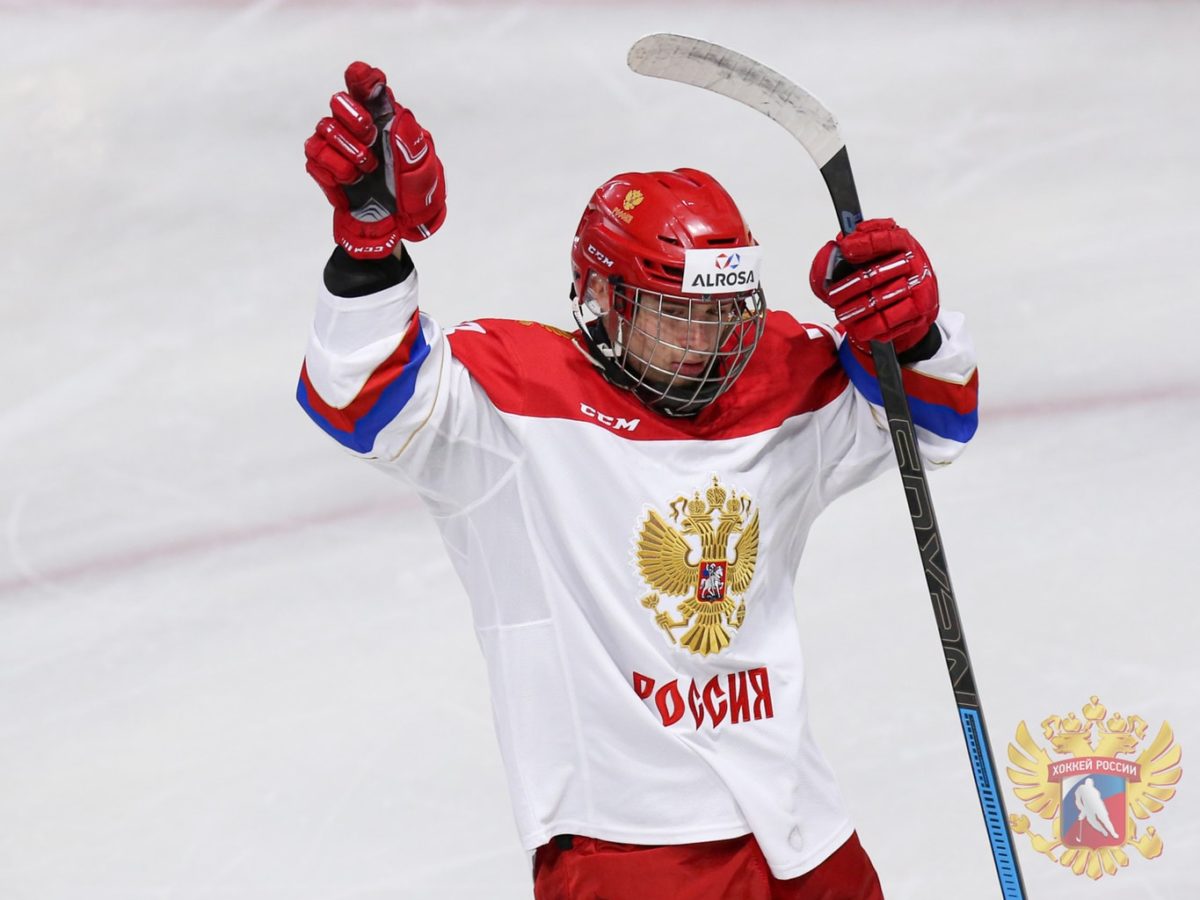
Russia has always been a threat in the WJC, as throughout the Soviet Union/Russian Federation teams’ history, they have won 36 medals in total, the most of any country. With the 2021 WJC beginning in just a few weeks, here is a look at Russia’s three greatest players in the tournament’s 45-year history.
Honourable Mentions: Alexander Mogilny & Sergei Markov
Alexander Mogilny, sometimes referred to as “Almo,” is one of the greatest players in WJC history. Born in Khabarovsk, Russia, he represented the Soviet Union in the 1988 and 1989 championships. In the 1988 Moscow World Juniors, he electrified his home country crowd, posting a tournament-leading 18 points. This resulted in him being named forward of the tournament by the Directorate of the International Ice Hockey Federation (IIHF). Although the Soviets lost to Canada in the gold medal game, this was not the end of the line for Mogilny.
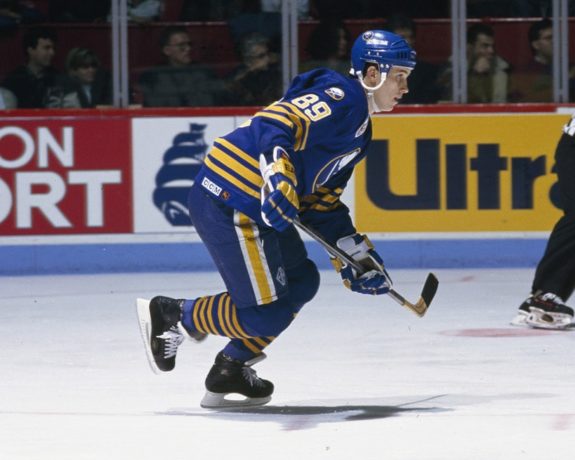
In the 1989 WJC, hosted in Anchorage, Alaska, Mogilny helped lead the Soviets to a gold medal victory. He finished in a tie for third in goals with seven, and his 12 points ranked fifth. Throughout his two tournaments, he scored 19 goals (ranks fourth all-time), and posted 35 points (fifth all-time).
Related: 2021 World Junior Championship Team Russia Preview
Sergei Markov is not a household hockey name in North America as his NHL play was hampered due to his age when he entered the league. The Russian from Chelyabinsk wasn’t allowed to play in the NHL until he was 31 and past his prime. However, he was referred to as “The Russian Gretzky” during his days playing in Russia and he dominated the two World Juniors that he played in.
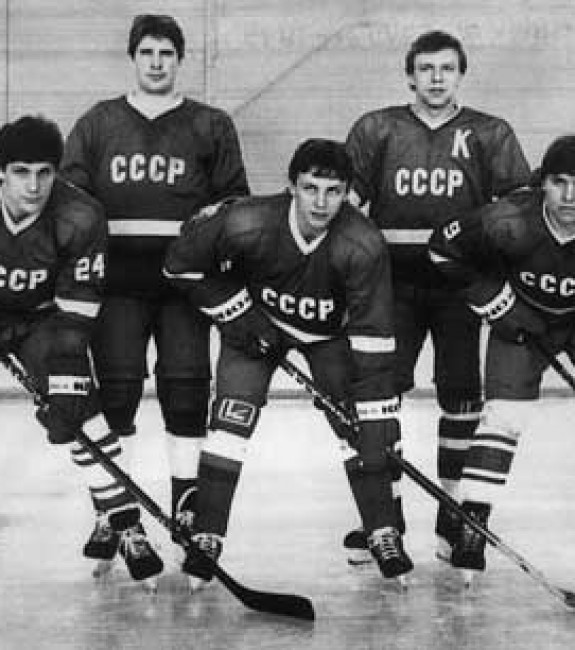
Markov helped guide the Russians to gold medal victories in both the 1977 and 1978 World Junior Championships. The 1978 tournament was his claim to fame as he produced 15 points and, alongside linemate Viktor Shkurdyuk, led the Soviets past the Wayne Gretzky-led Canadians. In just 14 WJC games, Markov posted an incredible 26 points, which ranks 19th in tournament history. His 1.857 points-per-game rate is tied for second among Russians who participated in two or more tournaments.
Number 3: Viacheslav Fetisov
Viacheslav Fetisov set the gold standard for defencemen in the WJC. He is the greatest defenceman to patrol the blue line in the tournament’s history. In his first WJC in 1976, Festisov helped lead the Soviet Union to a gold medal victory. However, this was just the tip of the iceberg for his play in the tournament.
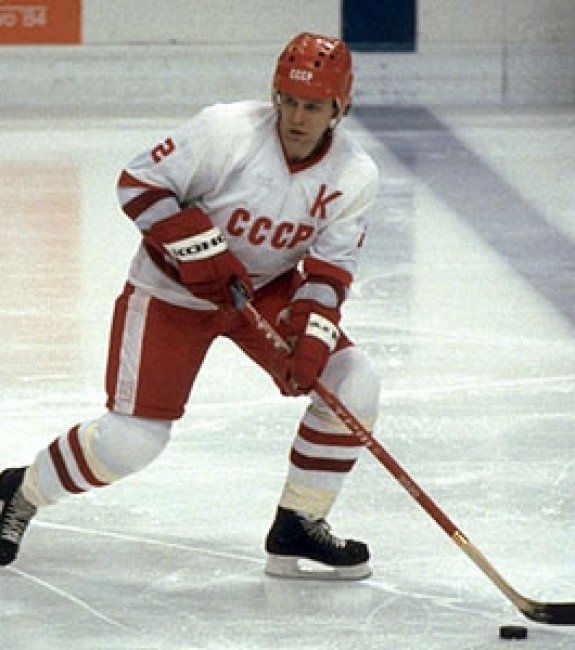
In the 1977 Czechoslovakia World Junior Championship, Festisov helped lead the Soviets to a perfect 7-0 record, and was named the tournament’s best defenceman. Remarkably, he managed to accomplish the same feat for a second-straight tournament in 1978.
Related: World Juniors’ History is Filled with Junior-A Standouts
No other player has won three gold medals and has been named the defenceman of the tournament twice; meaning the gold standard Festisov set has remained intact to this day.
Number 2: Pavel Bure
Pavel Bure, “The Russian Rocket,” is the greatest goal scorer in World Junior history. He’s the only player to score a goal per game in each of the three tournaments he participated in, and his 27 goals still stand as the tournament record.
Related: 7 Predictions for the 2021 World Junior Championship
In addition to his prolific goal scoring, he posted a total of 12 assists throughout the three tournaments. Combined, this is a total of 39 points in 21 games played, which ranks third all-time behind Peter Forsberg and Robert Reichel.
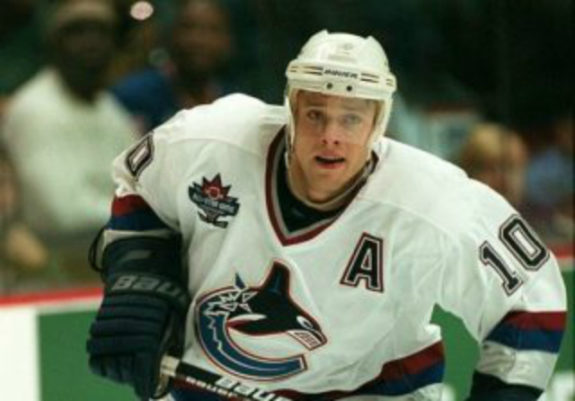
Bure participated in the tournament for three years from 1989 to 1991, taking home one gold medal and two silver medals. He was named the forward of the tournament in 1989, tying Jeremy Roenick for first in goals; subsequently, in 1991, he led the tournament in goals.
Number One: Vladimir Krutov
]Vladimir Krutov — “The Tank” — is the greatest player in Russia’s WJC history. He simply dominated in each of the two tournaments he played in, 1979 and 1980. The Soviet Union won gold both times, and he led each tournament in points (14 points in ’79 and 11 in ’80). As a result of this, Krutov was named the best forward in both tournaments, and remains the only player to win the award twice.
Krutov’s 2.273 points-per-game rate ranks first among Russians, which ranks 12th in tournament history. (Soviet-born Viktor Shkurdyuk had a better points-per-game ratio than Krutov, but he’s from Ukraine.) Krutov dominated the scoresheet every time he played in the WJC — he led his team to two gold medals, and he is the only player to win forward of the tournament twice. He is undoubtedly the greatest Russian player in WJC history.
A Rich History of Success
Russia has produced numerous WJC superstars. Although all of the players mentioned here played for the Soviet Union team, more modern players, including Alex Ovechkin and Evgeni Malkin, have had fantastic tournament showings as well. Russia is always a threat in the WJC, and perhaps their 2021 team will see the next Russian superstar emerge.
Stats are per: QuantHockey
All the 2021 World Junior Championship Team Information:
Austria — Team Preview — Roster
Canada — Team Preview — Roster
Czech Republic — Team Preview — Roster
Finland — Team Preview — Roster
Germany — Team Preview — Roster
Russia — Team Preview — Roster
Slovakia — Team Preview — Roster
Sweden — Team Preview — Roster
Switzerland — Team Preview — Roster
USA — Team Preview — Roster
Selection Camp Invites by NHL Team
Draft Eligible Players to Watch
One Player to Watch for Each World Junior Team
7 Predictions for the 2021 World Junior Championship